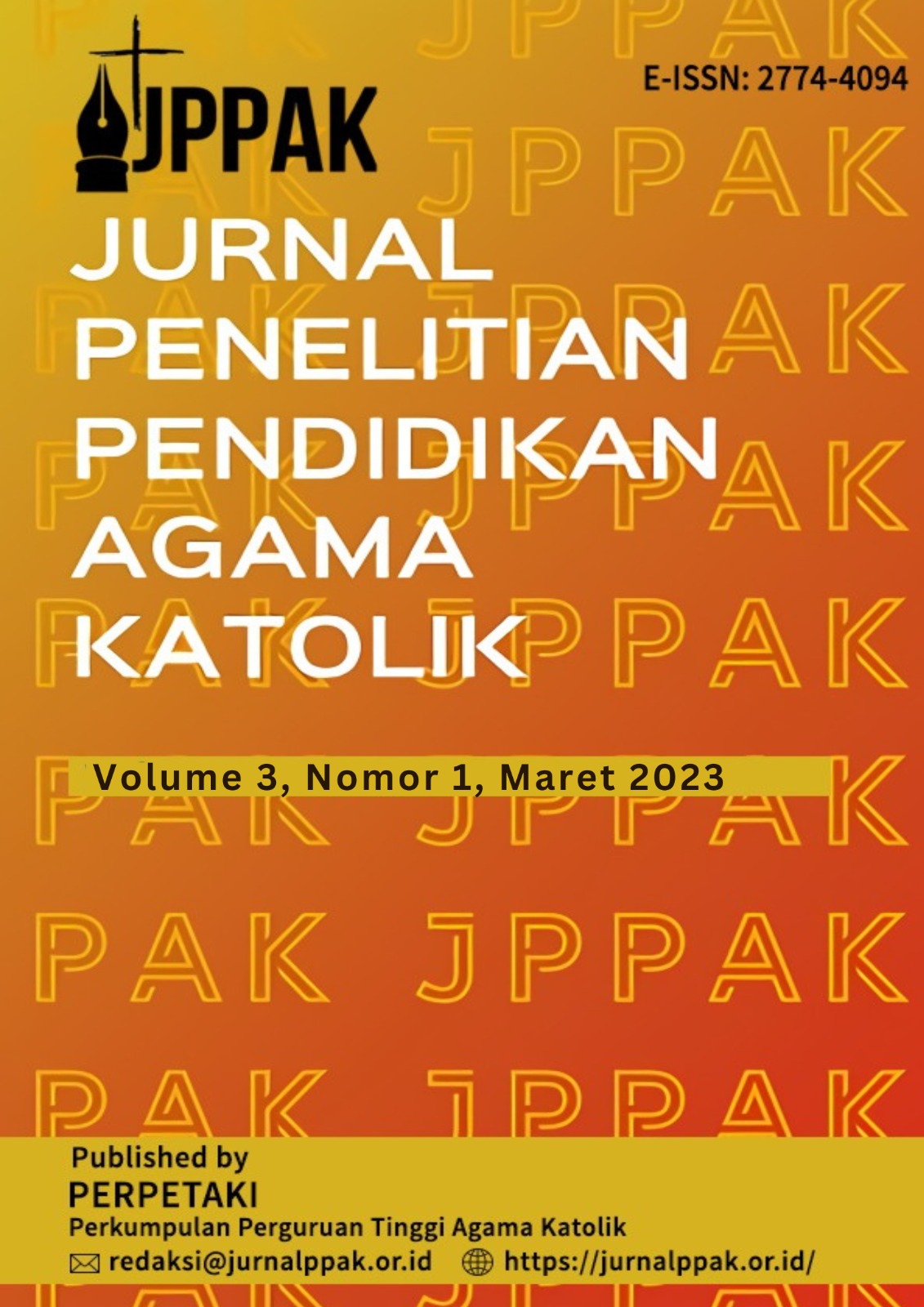Faith Development of Catholic Youth in Urban Areas
DOI:
https://doi.org/10.52110/jppak.v3i1.83Keywords:
Catechesis, Participation, Accompaniment, Catholic Young PeopleAbstract
Young people are important assets of the country and the church. Young people are inseparable from efforts to achieve the goals of the nation and state as well as the church. They have new knowledge, a high level of creativity, uniqueness, and specificity that need to be developed. Thus, their presence can also bring blessings to others and development to the Church. Therefore, the role of young people should not be ignored. This research departs from the author's observation in his home parish. The author found a lack of activeness in the Catholic Youth in the parish. Young Catholics need assistance from the Church. Young Catholics who are the present and future of the Church need to be assisted and prepared from now on. This study aims to provide insight into the development of the Catholic Youth faith in the midst of technological developments (internet) and foster the interest of young Catholics in church life and participation in church services. This research uses quantitative methods to find out how active young people are in church activities, and also literature study methods. The author created questions in a google form and then distributed them to 103 respondents. The author also looks for references that match the author's ideas. What this writing aims to achieve is to know the level of activeness of Catholic Youth in church.
Downloads
##submission.downloads##
Submitted
Accepted
Published
How to Cite
Issue
Section
License
Copyright (c) 2023 Adelbred Sinaga, Antonius Denny Firmanto

This work is licensed under a Creative Commons Attribution-ShareAlike 4.0 International License.
Copyright Notice and Permissions
Jurnal Penelitian Pendidikan Agama Katolik offers immediate open access to all its content on the principle to make researches freely available to the public, especially to the scholars, to support greater global exchanges of knowledge. This journal encourages all scholarly authors to allow their research openly available, free access and without time restrictions.
All articles published Open Access will be immediately and permanently free for everyone to read and download. Under the CC BY-SA 4.0 license, authors retain ownership of the copyright for their article, however authors grant others permission to use the content of publications in Jurnal Penelitian Pendidikan Agama Katolik (JPPAK) in whole or in part provided that the original work is properly cited. Users (redistributors) of Jurnal Penelitian Pendidikan Agama Katolik (JPPAK) are required to cite the original source by including at least: the full title of the article, the author's or authors' full name(s), JPPAK as the initial source of publication, year of publication and volume number using a propriate citing method.
Copyright encompasses exclusive rights to reproduce and deliver the article in all form and media, including reprints, photographs, microfilms and any other similar reproductions, as well as translations. The reproduction of any part of this journal, its storage in databases and its transmission by any form or media, such as electronic, electrostatic and mechanical copies, photocopies, recordings, magnetic media is prohibited without consent of Jurnal Penelitian Pendidikan Agama Katolik (JPPAK).
Jurnal Penelitian Pendidikan Agama Katolik (JPPAK) is licensed under a Creative Commons Attribution Share-Alike 4.0 International. (CC BY-SA 4.0)
Authors who publish with Jurnal Penelitian Pendidikan Agama Katolik (JPPAK) agree to the following terms:
- Authors retain copyright and grant the journal right of first publication with the work simultaneously licensed under a Creative Commons Attribution Share-Alike 4.0 International (CC BY-SA 4.0) license that allows others to share the work with an acknowledgement of the work's authorship and initial publication in this journal.
- Authors are able to enter into separate, additional contractual arrangements for the non-exclusive distribution of the journal's published version of the work (e.g., post it to an institutional repository or publish it in a book), with an acknowledgement of its initial publication in this journal.
- Authors are permitted and encouraged to post their work online (e.g., in institutional repositories or on their website) after the publication on JPPAK, as long as it not published on other OJS for it will be treated as plagiarism by plagiarism checker apps. It can lead to productive exchanges, as well as earlier and greater citation of published work (See The Effect of Open Access).












